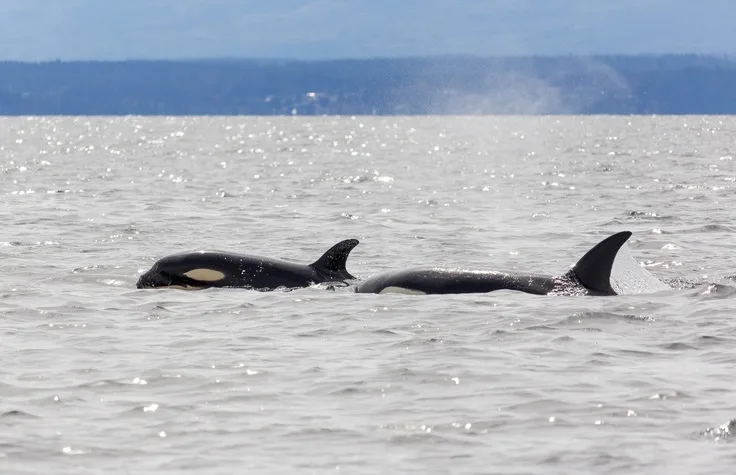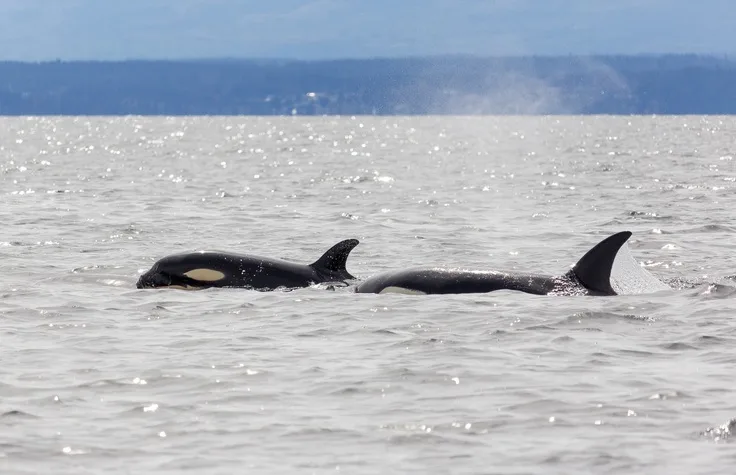
Russia releases more orcas from infamous 'whale jail'
Russia says it's continuing to release killer whales held in captivity in its Far East region, aiming to have all of them freed by September.
Photos of more than 100 whales kept in overcrowded ocean pens in Srednyaya Bay emerged months ago, prompting an international outcry. The whales had been intended for sale in China, but when news of their captivity broke, the Russian government intervened, signing an agreement with an international group of scientists and conservationists to gradually release them back into the wild.
It seems that process has been ongoing and apparently successful, according to Russia's TASS News Agency, which said Tuesday that this week's release of killer whales into the Sea of Okhotsk was the third so far.
"In line with our plan, by September 1 we will release all orcas and will start transporting beluga whales," Ilya Shestakov, the head of Russia's Federal Agency for Fishery, told TASS.

Killer whales swim in the ocean. File photo/Getty
READ MORE: B.C. killer whales missing for months now 'presumed dead.'
As for when the release of the belugas might be completed, Shestakov said November was the "natural deadline."
"Everything here depends on weather conditions and technical possibilities," Shestakov said.
There were originally 11 killer whales held at the facility, and 90 belugas, but TASS says three belugas and one killer whale went missing. The Russian government says it's pursuing criminal charges against the groups that captured the whales, many of whom are suffering health problems due to their ordeal, according to the BBC.
The captive whales were destined for China, where the BBC says waterpark attractions are booming.
But elsewhere in the world, the movement has been away from keeping whales and other cetaceans in captivity. In 2016, California became the first U.S. state to ban killer whales from appearing in marine park shows, as well as banning the breeding of captive whales.
In 2019, Canada became the latest country to ban the import and export of cetaceans after Parliament passed senate bill S-203. However, the bill grandfathered in cetaceans that were already held in captivity, such as those at Ontario's Marineland.










